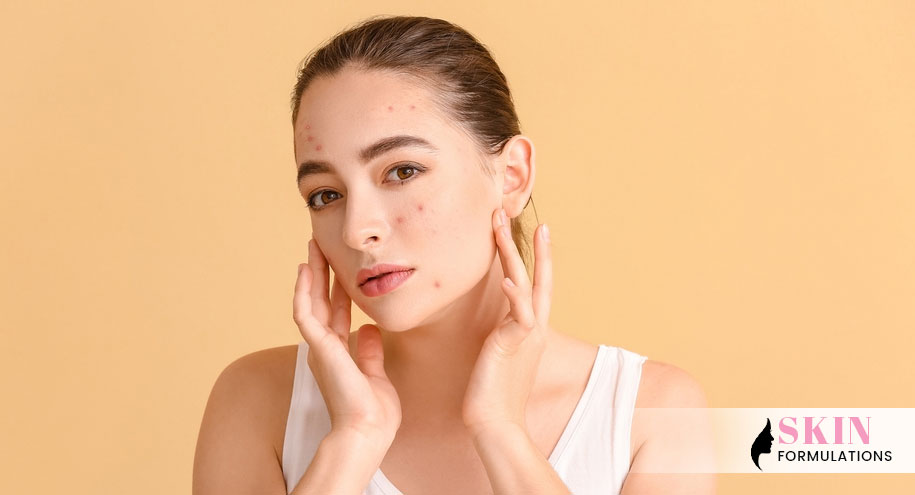Fungal Acne – Signs, Causes, And Treatments

Introduction
Do you have clusters of red, itchy, pus-filled small bumps on your skin that don’t respond to regular acne treatments? You might have a condition called fungal acne, which is caused by an overgrowth of yeast on the skin and can lead to breakouts that can be mistaken for traditional acne. The good news is that fungal acne is treatable, so keep reading to learn more about how to recognize the signs and what you can do to get rid of it.
What Is Fungal Acne?
Fungal acne is a type of folliculitis, a skin condition where the hair follicles become inflamed, which in this case is due to an overgrowth of fungi on the skin. Fungal acne most commonly occurs on the face, but it can also be found on the chest, back, and other areas of the body. While the condition is more common in people who have oily skin, individuals of any skin type may experience it and although it is not contagious, it can be difficult, but not impossible, to get rid of.
What Causes Fungal Acne?
The most common type of fungus that causes fungal acne is called Malassezia, a yeast that lives on the skin and feeds on the sebum, or oil, produced by the sebaceous glands. While it is normally present on the skin in small numbers, the problems arise when there is an overgrowth of this yeast, leading to symptoms such as redness, scaling, and itching.
Several factors can contribute to the overgrowth of Malassezia on the skin. These include:
- Use of certain oily cosmetics or skincare products: When these products are used on the skin, they provide a perfect environment for the fungi to grow.
- Humid environments: Humidity and moisture can also help promote the growth of fungi, which is why it often affects people who live in hot, humid climates.
- Use of antibiotics: One of the side effects of using antibiotics is that they can kill off good bacteria that are needed to keep the growth of fungi in check.
- Weak immune system: People with a weakened immune system, such as individuals with HIV/AIDS or cancer, are more susceptible to developing fungal acne.
Symptoms Of Fungal Acne
While it’s important to get a proper diagnosis from a professional, if you experience any of the following symptoms, it could indicate that you have fungal acne:
- Red, itchy skin
- Pus-filled bumps
- Scaling or flaking of the skin
- Clusters of small pimples
- Irritated hair follicles
How To Treat Fungal Acne?
If you suspect fungal acne, it can be treated successfully with topical or oral antifungal medications prescribed by your doctor or dermatologist. Topical antifungals are typically used for milder forms of fungal acne, while oral antifungals are reserved for more severe cases, and sometimes a combination of both may be necessary to clear the infection. Studies have also shown that light therapy may also help treat the condition.
If you have a case of fungal acne, in addition to getting the proper medication, always cleanse the skin gently and avoid harsh scrubbing, which can cause irritation and make the condition worse. Additionally, it is important to avoid using oily products or those that can trap moisture on the skin, as this can provide an environment that is favorable for the growth of the fungus.
Conclusion
While some people may be reluctant to get help if they suspect they have fungal acne, it’s important to know that it’s nothing to be ashamed or embarrassed about, and contrary to popular belief is not an indication of poor hygiene.
However, during and after treatment, you can take measures to prevent it from reoccurring, such as showering straight away after activities that cause you to sweat, wearing loose clothing made from breathable fabrics, and eating a balanced diet that’s low in sugary carbohydrates.
Seeing a healthcare professional will ensure that you get the right medication, which will help treat the condition quickly and safely.
Deprecated: Function WP_Query was called with an argument that is deprecated since version 3.1.0!
caller_get_posts is deprecated. Use ignore_sticky_posts instead. in /home/healthwebmagazin/skinformulations.com/wp-includes/functions.php on line 6121






